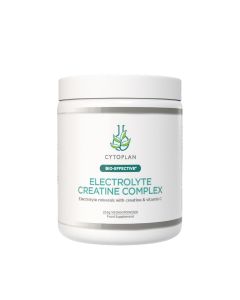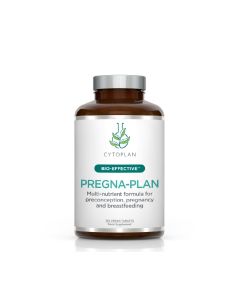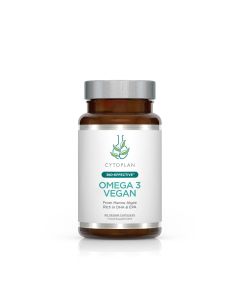How can I stay healthy in the 4th trimester?
What is the 4th trimester?
The adjustment to parenthood for brand new mums is a significant transitional period, characterised by a myriad of emotional, physical and social changes. The 4th trimester refers to the 12 weeks following the birth of your baby, when you suddenly need to navigate the needs of your new baby, your partner and your own needs. It is unsurprising therefore that many mums feel as though they need extra support during this time.
How can I stay healthy in the 4th trimester?
This postpartum period is such an important time for you and your baby to navigate your new life together, and while ensuring your baby’s health and wellbeing is undoubtedly going to be your main priority, it is also important to ensure your own wellness. Your little one needs a strong and healthy mother!
Firstly – be kind to yourself. Your body has been through an amazing transformation over the past 9 months, and it is going to take a little time before you might start to feel like yourself again. You are likely to be overwhelmed with information on how to care for your new arrival, but the following advice can help you to ensure your own health and recovery during the 4th trimester.
What are the best foods to eat in the 4th trimester?
Your diet should provide a wide range of wholefoods; plenty of fresh fruit and vegetables, wholegrains, good quality proteins and healthy fats. Meanwhile, try to avoid added sugars, processed foods and refined carbohydrates (white bread, rice, pasta etc.). This will help to balance your blood glucose levels, which can help to support energy levels, hormonal balance and mood.
Eat plenty of protein
Protein is an essential nutrient to help rebuild and repair muscle and tissue and support your healing following birth, particularly if you needed stitches or surgery. It also helps to balance blood sugar levels to give you sustained energy throughout the day. Great sources include eggs, meat and fish, nuts/seeds, beans, pulses and full-fat dairy.
Serotonin, known as our “feel good” hormone, is an important neurotransmitter that can support a cheerful and positive mood. Serotonin is made from the amino acid tryptophan, found in protein-containing foods such as lean poultry, tofu and soy, fish, milk, pumpkin seeds, oats and eggs – so try to include as many sources as you can. Vitamin B6 is also needed for the conversion of tryptophan into serotonin, so make sure you include plenty of foods rich in B6 such as fish, poultry, milk, carrots, spinach and chickpeas.
Support your digestion
Constipation is a common occurrence in the 4th trimester, which could be due to sleep disturbance, increased stress, the fact you are moving less, or the fear of pain when passing stools. You can support your digestion and regular bowel movements by including plenty of fibre-rich foods such as fruits and vegetables and soaked or ground seeds, which will help to soften the stools and make them easier to pass.
Make sure you keep hydrated with plenty of water or herbal teas. Not only will this support healthy bowel movements, but dehydration can contribute to symptoms such as headaches and fatigue.
Which supplements can support me through the postpartum period?
Just as I am sure you took a prenatal vitamin throughout the first 3 trimesters, it is equally important to ensure an excellent level of nutrients to support your health and recovery in the 4th trimester. A comprehensive multivitamin and mineral supplement can help to replenish the nutrients that might have become depleted during pregnancy and birth, such as folate, iron, selenium, calcium and vitamin D. If you are breastfeeding, your baby will use nutrients you get from your diet, as well as from your own stores, so replenishing these is essential to maintain your health and wellbeing as well as your baby’s growth and development.
Omega-3 Fatty Acids
Oily fish provide a great source of omega-3 fatty acids, but regularly eating oily fish is not always practical or desirable, so a supplement can sometimes be supportive. Your stores of the omega-3 DHA drop during pregnancy, and it is thought that poor levels can contribute to low mood in the 4th trimester. If you are breastfeeding, DHA is also essential for your baby’s brain and vision development, so an omega-3 supplement rich in DHA, such as those from marine algae, could be supportive.
Pre and Probiotics
Aside from its role in promoting healthy digestion, supporting your gut health is key to your overall health and wellbeing and plays an important role in mood and immunity. You can support the balance of your gut microbiome by including prebiotic and probiotic foods, but you might need a little more support, especially after surgery or antibiotics. A mixed prebiotic or multi-strain probiotic supplement could therefore be a helpful addition. Supporting your microbiome will also be beneficial for your baby, who will pick up your friendly strains through breastfeeding and plenty of skin-to-skin contact.
Iron
While iron is the most common deficiency globally, the risk of low levels increases during both pregnancy and breastfeeding when demand is greater, and particularly if there has been blood loss during birth. Iron is important for energy, repair and immune health, so many new mums may benefit from including plenty of iron-rich foods such as red meat, poultry, eggs, dark green leafy veg, beans and pulses, or a bioeffective wholefood iron supplement – as well as ensuring plenty of vitamin C to help iron absorption.







